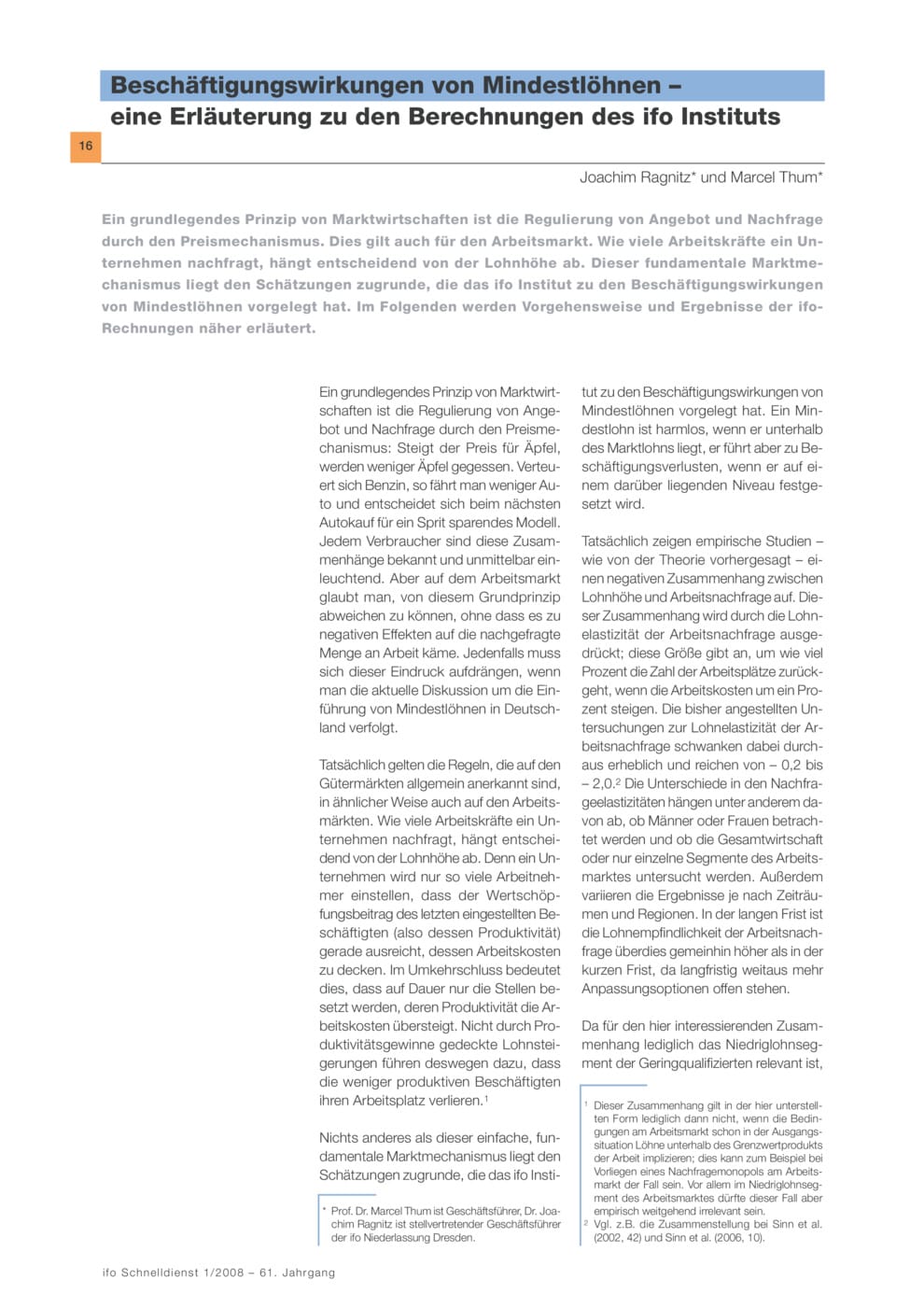Employment effects of minimum wages - an explanation of calculations presented by the Ifo Institute
ifo Institut für Wirtschaftsforschung, München, 2008
ifo Schnelldienst, 2008, 61, Nr. 01, 16-20

A basic principle of market economies is the regulation of supply and demand by the price mechanism. This also holds for the labour market. How many workers an enterprise demands depends greatly on the amount of wages. This elementary market mechanism is at the basis of the estimates of the employment effects of minimum wages presented by the Ifo Institute. This article explains the methodology used by the authors in more detail. Their calculations on the employment effects from an introduction of minimum wages are based on simple and fundamental market mechanisms. A minimum wage is harmless if it lies below the market wage; it leads to job losses, however, if it is clearly above this. Even with a moderate minimum wage of €4.50 in Germany, 360,000 jobs would be lost in total. This number increases to 827,000 with a minimum wage of €6.50 and to 1.1 million jobs with a minimum wage of €7.50. If, in the extreme case, the minimum wage introduced for letter carriers (€9.00 in eastern and €9.50 in western Germany) was introduced for all sectors of the economy, the jobs losses would amount to 1.9 million persons. Eastern Germany would be affected more strongly because of the lower level of average wages; here employment losses with a minimum wage of €7.50 would amount to 6.4% of all employees in the private sector (western Germany: 3.1%); with a universal minimum wage of €9 to nearly 10% (western Germany: 4.5%).